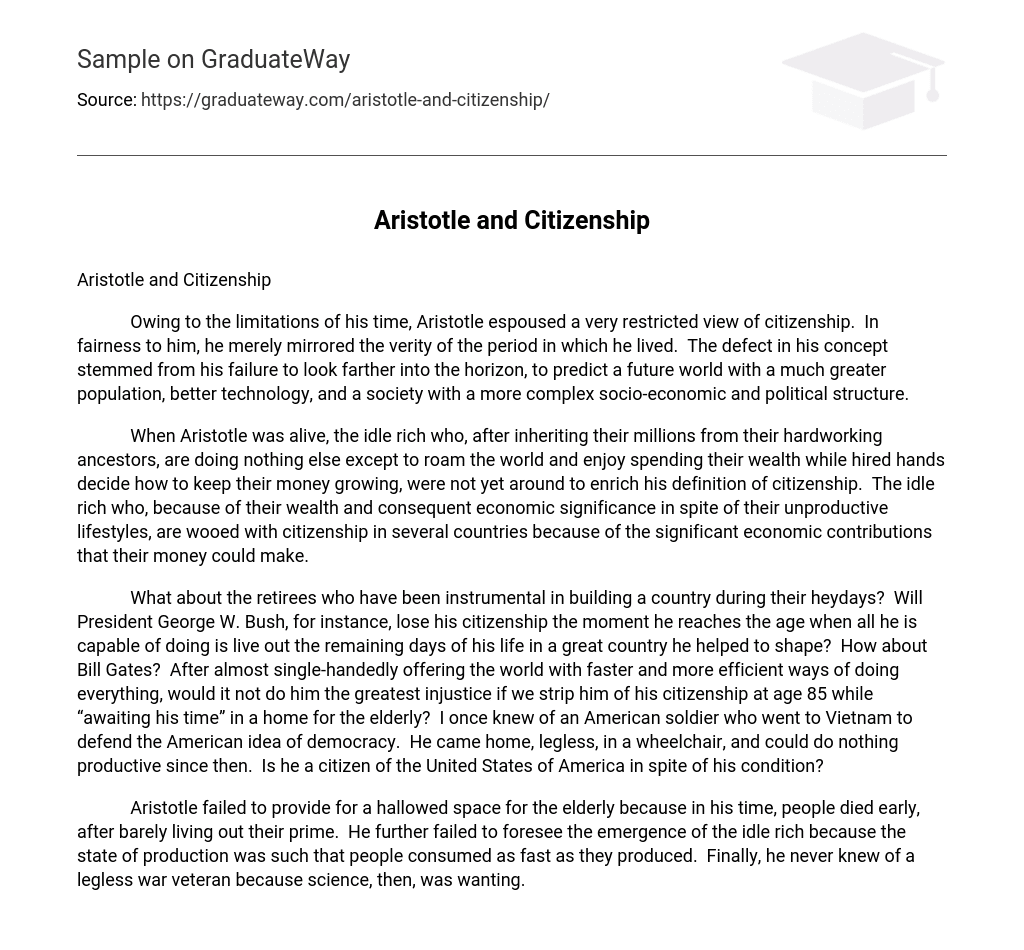Owing to the limitations of his time, Aristotle espoused a very restricted view of citizenship. In fairness to him, he merely mirrored the verity of the period in which he lived. The defect in his concept stemmed from his failure to look farther into the horizon, to predict a future world with a much greater population, better technology, and a society with a more complex socio-economic and political structure.
When Aristotle was alive, the idle rich who, after inheriting their millions from their hardworking ancestors, are doing nothing else except to roam the world and enjoy spending their wealth while hired hands decide how to keep their money growing, were not yet around to enrich his definition of citizenship. The idle rich who, because of their wealth and consequent economic significance in spite of their unproductive lifestyles, are wooed with citizenship in several countries because of the significant economic contributions that their money could make.
What about the retirees who have been instrumental in building a country during their heydays? Will President George W. Bush, for instance, lose his citizenship the moment he reaches the age when all he is capable of doing is live out the remaining days of his life in a great country he helped to shape? How about Bill Gates? After almost single-handedly offering the world with faster and more efficient ways of doing everything, would it not do him the greatest injustice if we strip him of his citizenship at age 85 while “awaiting his time” in a home for the elderly? I once knew of an American soldier who went to Vietnam to defend the American idea of democracy. He came home, legless, in a wheelchair, and could do nothing productive since then. Is he a citizen of the United States of America in spite of his condition?
Aristotle failed to provide for a hallowed space for the elderly because in his time, people died early, after barely living out their prime. He further failed to foresee the emergence of the idle rich because the state of production was such that people consumed as fast as they produced. Finally, he never knew of a legless war veteran because science, then, was wanting.





